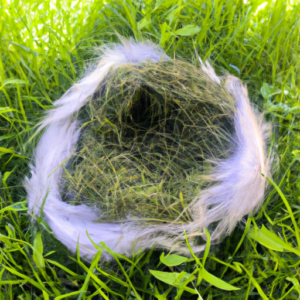Imagine owning a flock of chickens and eagerly awaiting those fresh, delicious eggs each morning. However, you are faced with a concerning issue – soft-shelled eggs. In this article, we will explore the common causes of soft-shelled eggs in chickens and provide practical tips on both prevention and treatment. With our helpful insights, you can ensure that your feathered friends enjoy a happier, healthier egg-laying experience, leading to stronger and more robust shells. Say goodbye to those fragile eggs and say hello to a cluck-tastic solution!
Causes of Soft-shelled Eggs
Soft-shelled eggs can occur in chickens for several reasons, including dietary imbalances and calcium deficiency. These factors can negatively impact eggshell formation and result in the production of eggs with soft shells.
Dietary Imbalances
One of the leading causes of soft-shelled eggs in chickens is a dietary imbalance. Chickens require a well-balanced diet that provides them with essential nutrients, including sufficient amounts of calcium. Inadequate levels of protein and other critical nutrients can also affect the quality of eggshells produced by the hens.
Calcium Deficiency
Calcium deficiency is another significant cause of soft-shelled eggs. Calcium is crucial for the formation of strong eggshells and is typically obtained by hens through their diet. If a hen’s diet lacks an adequate amount of calcium, she may struggle to produce eggs with the proper shell structure.
Preventing Soft-shelled Eggs
Fortunately, there are several preventive measures you can take to minimize the occurrence of soft-shelled eggs in your flock.
Balanced Diet
Maintaining a balanced diet is key to preventing soft-shelled eggs. Ensure that your chickens have access to a high-quality feed that is specifically formulated for their nutritional needs. This feed should contain the appropriate levels of protein, calcium, and other vital nutrients necessary for optimal eggshell formation.
Calcium Supplementation
To address calcium deficiency, consider supplementing your hens’ diet with calcium. There are various calcium sources you can provide, such as crushed eggshells, oyster shell grit, or commercial calcium supplements specifically designed for poultry. Offering these options ensures that your chickens have access to the necessary calcium for producing strong eggshells.
Proper Lighting
Exposing your flock to proper lighting conditions can also help prevent soft-shelled eggs. Chickens require a consistent day-night cycle to regulate their reproductive systems. Ensure they have access to natural light or provide artificial lighting in their coop to simulate daylight hours. Maintaining a consistent lighting schedule can help maintain proper eggshell formation.
Stress Reduction
Stress can contribute to soft-shelled eggs, so it’s important to minimize stressors in your flock’s environment. Provide a clean and comfortable living space for your chickens and ensure they have enough space to move around freely. Minimize noise levels and reduce predator threats to create a calm and secure environment for your flock.
Hydration
Proper hydration is crucial for egg production and shell formation. Ensure your flock has access to clean and fresh water at all times. Regularly check waterers to ensure they are functioning correctly and provide enough water for all your chickens. Water intake directly impacts egg quality, so keeping your hens adequately hydrated can help prevent soft-shelled eggs.
Treating Soft-shelled Eggs
If a hen lays a soft-shelled egg, immediate intervention is necessary to address the issue and prevent any further complications.
Immediate Intervention
When you discover a soft-shelled egg, remove it from the nesting box promptly. This prevents the egg from breaking and contaminating the surrounding area. Handling the egg carefully can minimize the risk of contamination and maintain the overall cleanliness of your coop.
Calcium Boost
To help the hen replenish her calcium levels, provide a calcium boost in her diet. This can be achieved by offering calcium-rich treats such as crushed eggshells, oyster shell grit, or commercial calcium supplements. Consider adding a higher calcium layer feed to your flock’s diet temporarily to ensure they receive a sufficient amount of this vital nutrient.
Nutritional Therapy
In addition to a calcium boost, ensuring a well-balanced diet is crucial for treating soft-shelled eggs. Review your flock’s diet and ensure they are receiving adequate levels of protein, vitamins, and minerals. Consult with a poultry nutrition specialist if needed to develop a customized feeding plan for your chickens.
Veterinary Assistance
If soft-shelled eggs persist despite dietary adjustments, seek veterinary assistance. A veterinarian experienced in poultry health can perform a thorough examination of your flock and determine if any underlying health issues are causing the soft-shelled eggs. They may recommend additional treatments or medications to address the problem effectively.
Monitoring Egg Quality
Regularly monitoring the quality of your flock’s eggs is essential for identifying any potential issues, including the occurrence of soft-shelled eggs.
Eggshell Condition
Inspect the condition of your eggs regularly. Cracks, thinness, and irregularities in the shell’s surface may indicate problems with eggshell formation. Take note of any soft-shelled eggs you find and monitor the frequency to determine if there is an ongoing issue within your flock.
Eggshell Thickness
Measure the thickness of the eggshells using a specialized tool called an eggshell thickness gauge. This measurement can provide valuable information about your hens’ calcium levels and overall shell quality. Thinner shells may indicate a need for dietary adjustments or calcium supplementation.
Eggshell Strength
Perform a strength test on the eggshells by applying gentle pressure to determine their resistance. Strong shells should withstand light pressure, while soft or weak shells may crack or break easily. By assessing the strength of your eggs, you can identify any potential weaknesses and take appropriate action.
Implications of Soft-shelled Eggs
Understanding the implications of soft-shelled eggs is crucial for ensuring the overall well-being and productivity of your flock.
Compromised Shell Protection
Soft-shelled eggs compromise the natural protection that eggshells provide to the developing embryo. The fragile shell structure increases the risk of cracking or breaking, exposing the embryo to potential pathogens and compromising its chances of survival.
Reduced Fertility
Soft-shelled eggs can result in reduced fertility rates within your flock. The irregular shell structure may prevent proper fertilization and decrease the likelihood of successful incubation. Addressing the issue promptly is essential to maintain optimal fertility rates.
Breakage Risks
Soft-shelled eggs are more prone to breakage during handling or nesting, which can lead to various issues. Broken eggs create a mess in the coop, attract pests, and increase the risk of bacterial contamination. Additionally, cracked or broken eggs may be unusable or result in financial losses for poultry farmers.
Impact on Egg Production
Soft-shelled eggs can have a significant impact on egg production, affecting both hatchability and the overall mortality of embryos.
Reduced Hatchability
Soft-shelled eggs often have a lower hatchability rate compared to eggs with strong shells. The fragile shell structure can make it difficult for the embryo to develop properly and successfully hatch. Ensuring optimal eggshell quality is essential for maintaining a healthy and productive flock.
Increased Mortality of Embryos
Due to the compromised shell protection, embryos within soft-shelled eggs are at a higher risk of mortality. The delicate shell structure makes them susceptible to external factors, such as moisture loss or bacterial contamination, which can lead to embryo death. By preventing soft-shelled eggs, you can help protect the embryos and maximize their chances of survival.
Importance of Proper Nutrition
Providing your flock with proper nutrition is a fundamental aspect of poultry care. A balanced diet supports overall health, egg production, and shell quality.
Dietary Requirements
Chickens have specific dietary requirements that vary depending on their age and purpose. It is essential to understand the nutritional needs of your flock and provide them with a feed that meets these requirements. Consult with a poultry nutritionist or veterinarian to develop a feeding plan tailored to your chickens’ specific needs.
Calcium Sources
Calcium is a vital nutrient for chickens, particularly for proper eggshell formation. Besides including calcium-rich treats in their diet, provide them with natural sources such as free-choice oyster shell grit. Ensuring a steady and sufficient supply of calcium supports healthy shell development and minimizes the risk of soft-shelled eggs.
Supplementing with Grit
In addition to calcium, incorporating grit into your flock’s diet is essential. Grit aids in digestion by grinding food in the chicken’s gizzard and promoting nutrient absorption. Adding insoluble grit, like granite or flint, allows chickens to break down their feed effectively, aiding in overall digestion and nutrient utilization.
Environmental Factors
Environmental factors play a significant role in preventing soft-shelled eggs and promoting overall flock well-being.
Temperature
Maintaining appropriate temperatures within the coop is crucial for optimal eggshell formation. Extreme temperatures, whether excessively high or low, can disrupt the reproductive cycle of hens and result in lower-quality eggs. Ensure that your coop is well-insulated and equipped with proper ventilation to regulate temperature effectively.
Humidity
Humidity levels in the coop also impact eggshell quality. High humidity can lead to condensation on the shells, making them more susceptible to bacterial contamination. Conversely, low humidity can cause rapid moisture loss from the eggs, resulting in decreased hatchability. Monitor and maintain appropriate humidity levels in the coop to support healthy egg production.
Ventilation
Proper ventilation is essential for maintaining a healthy coop environment. Good airflow helps remove excess heat, moisture, and odors, ensuring optimal conditions for egg production. Insufficient ventilation can increase humidity levels, contributing to soft-shelled eggs and other health issues. Regularly inspect and clean ventilation systems to promote a comfortable and well-ventilated space for your flock.
Lighting Requirements
Proper lighting is crucial for regulating the reproductive systems of your chickens and supporting healthy egg production.
Natural Light
Allowing your flock access to natural light is ideal for maintaining their circadian rhythms and reproductive cycles. Ensure that their coop has windows or openings that allow natural daylight to enter. Natural light exposure supports healthy eggshell formation and overall flock well-being.
Artificial Lighting
In situations where natural light is limited, supplemental artificial lighting can help maintain consistent lighting conditions. Use appropriate lighting fixtures and bulbs that emit a spectrum similar to natural sunlight. Provide a consistent light schedule that mimics the day-night cycle to support proper eggshell formation and egg production.
Light Intensity and Duration
Pay attention to the intensity and duration of the lighting provided to your flock. The recommended light intensity ranges between 1 and 5 lux, which is roughly equivalent to twilight conditions. It is crucial to strike a balance between providing enough light to stimulate egg production and preventing excessive or prolonged exposure that may disrupt natural reproductive rhythms.
Managing Stress Levels
Minimizing stress in your flock contributes to overall health and egg production. Implementing strategies to manage stress can help prevent soft-shelled eggs and support the well-being of your chickens.
Minimizing Noise
Excessive noise can cause stress in chickens, impacting their reproductive processes and eggshell quality. Avoid loud noises or sudden sounds near your flock’s living space. If necessary, establish quiet zones or provide sound barriers to minimize noise levels and create a calm environment.
Optimizing Space
Providing adequate space for your flock to move around freely is crucial for reducing stress levels. Overcrowding can result in aggressive behavior, increased competition for resources, and heightened stress. Ensure that your chickens have enough room to engage in natural behaviors, such as perching, dust bathing, and foraging.
Reducing Predator Threats
Predator threats can significantly increase stress levels in your chickens. Implement appropriate security measures, such as sturdy fencing or predator-proof enclosures, to protect your flock from potential predators. By minimizing the risk of predation, you create a safer environment, allowing your chickens to be more relaxed and less prone to producing soft-shelled eggs.
In conclusion, preventing and treating soft-shelled eggs in chickens requires a multifaceted approach that addresses dietary imbalances, calcium deficiency, and various environmental factors. By providing a balanced diet, supplementing with calcium, ensuring proper lighting, reducing stress levels, and closely monitoring egg quality, you can help maintain optimal eggshell formation and promote the overall health and productivity of your flock. Remember, a well-nourished and stress-free flock leads to healthier, stronger shells and a higher hatchability rate, ultimately benefiting both the chickens and poultry farmers







